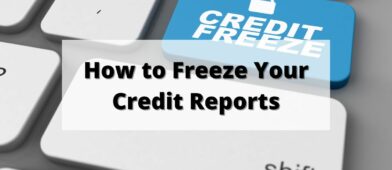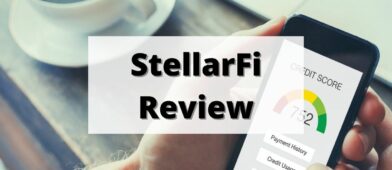Financial fraud is a common occurrence in today’s world. For that reason, you must know how to verify funds on a check if you accept checks as payment for a product or service.
Verifying funds on a check is an easy but important step you can take to avoid getting scammed out of your money. In this article, I’ll show you how to verify funds on a check and uncover some check-writing scams you should be aware of.
Table of Contents
- Verifying Funds on a Check
- Verify the Issuer’s Legitimacy
- Search Contact Information for the Issuing Bank
- Call the Issuing Bank for Verification
- Deposit the Check as Soon as Possible
- 4 Common Check-Writing Scams
- Check Fraud Red Flags
- Someone Asks to Exchange a Check for Cash
- Nervous or Shifty Behavior
- Contradictory Information
- Checks That Don’t Look Legitimate
- Go with Your Gut
- Steps to Take if You Get Scammed
- Verifying Funds on a Check: Final Thoughts
Verifying Funds on a Check
There’s a difference between verifying a check for funds and confirming its legitimacy, and not everyone realizes this.
For example, if a stolen check was written on an active bank account using a forged signature, there’s a good chance the funds will be available, and the check will clear. But the check is not legit because it was stolen and not authorized by the account holder.
Even if the check clears, it isn’t legit, and the bank will eventually return it once the fraud is exposed.
Let’s take a closer look at the process of verifying funds on a check.
Verify the Issuer’s Legitimacy
Verifying the company that issued the check is important since it’s so easy to create and print checks from a home computer these days.
You can start researching the legitimacy of a company or individual issuing a check by searching the net.
Almost all companies have a web presence, and people do too. Look for information on the web regarding the company or the individual, whether negative or positive.
Search Facebook, and use Google to search for the issuer’s name and address. Call the business directly if you find a number on the internet. However, make sure you’re calling the right company because it’s common for more than one business to share the same name.
Think like a detective as you search. See what kind of legit and verifiable information you can find to ensure the person writing the check is who they say they are.
Search Contact Information for the Issuing Bank
Next, you’ll want to search online for contact information for the bank on which the check was drawn. Never call the phone number listed on the check, as it’s too easy to manipulate that information.
By searching online and ensuring the number you’re calling is from the official website of the issuing bank, you can be sure you’re reaching a verified bank employee.
Call the Issuing Bank for Verification
After you’ve obtained the correct phone number for the bank by searching online, call the bank and follow the prompts for verifying funds on a check. Note that the bank representative you speak with will ask you several questions, whether it’s a personal check or one drawn on a business. They may want to know the following information:
- Issuer name (account holder)
- Check issue date (is the check stale-dated?)
- Bank routing number
- Bank account number
- The dollar amount of the check
Be prepared by having the check in front of you when you call. Another option is to go to a branch location for the issuing bank if one is nearby. That way, a bank representative can personally view the check.
Either way, once you share the necessary information regarding the check, the bank representative can tell you the information you need to know. For example:
Are there funds in the bank account to cover the check amount?
If the funds are available, that’s great news! If not, you’ll need to call again (we suggest daily) to check for funds availability.
Keep calling until you get the okay that the funds are there. If the funds are not there when you call, consider canceling your agreement with the check writer. Whatever you do, don’t hand over the product or complete the service.
It’s likely safe to move forward if the funds are available. Remember, however, that people can write fraudulent checks on accounts with plenty of money in them.
That’s why checking the business or individual is so important. As I mentioned earlier, verifying funds doesn’t prove the legitimacy of a check.
Deposit the Check as Soon as Possible
Next, you’ll want to deposit the check as soon as possible if the funds are available, especially if you don’t know the issuing company or person well.
Bank balances change frequently, and a check that’s good today might not be good tomorrow.
You have no idea how many other checks this person has written or what other financial activity is pending on the account.
In that vein, let’s talk a bit about common check writing scams you should be aware of.
4 Common Check-Writing Scams
Like all other forms of fraud, check-writing scams are widespread these days. Some common types of check writing scams (along with how they work) are listed below.
Lottery Scams
Do you ever dream of winning the lottery? If so, you’re not alone. Of course, putting financial safety nets in place is a better idea. But some of us still can’t help being drawn in by the lure of winning the lottery – which is why check-based lottery scams are so successful. Here’s how they work.
First, someone will contact you by email or phone to inform you that you won a lottery, draw, (or sometimes an inheritance).
The “prize” will be pretty large to entice you. The company that claims to hold the funds will tell you that you have to pay taxes and fees before getting your winnings.
They’ll instruct you to send them a check to cover the taxes/fees (usually several hundred to several thousand dollars). The story does that once the check clears, they will deposit your winnings into your bank account or send you a check with your net winnings.
Not surprisingly, you never hear from them again after you send them the money.
Online Auction Scams
Criminals often use online auction sites like eBay to get money via a check. Here’s one way they will try to do this:
You sell something on eBay, and the buyer sends you a check for an amount that’s higher than the selling price of the item.
They will claim that the incorrect amount was a “mistake” and ask you to send them back the difference.
Don’t fall for this! Send back the original check and ask for a new one. And don’t send the item you sold until you have your cash in hand.
Personal Assistant Scams
Personal assistant scams are also common these days. Criminals will pose as legit business owners and hire you as a personal assistant.
From there, they’ll give you a check and instruct you to purchase gift cards or supplies.
Once you cash the check and mail your “employer” their gift cards or other supplies, you’re left holding the bag when the check they gave you comes back as no good.
Job Offer Scams
Check fraud using job offer scams is also common. Your new “employer” will send you a check for a bonus starting amount.
They’ll ask you to cash the check and then ask you to send them an activation or other fee in return. The fee amount is usually several hundred dollars.
You send them the fee amount, but the bonus check will come back as no good, and your new “employer” will be long gone.
Next, let’s go over some red flags you can look for to protect yourself from falling victim to check fraud.
Check Fraud Red Flags
Keep a lookout for these check fraud red flags and protect your money from fraudsters.
Someone Asks to Exchange a Check for Cash
Beware of any person who wants to write you a check in exchange for cash. It’s a common tactic used by people who have stolen checkbooks.
Nervous or Shifty Behavior
Awaken the psychologist in you and be on the lookout for shifty behavior. Some behavioral or body language signs that you’re dealing with a criminal might include:
- Rapid breathing
- Darting eyes
- Fidgety movements
- Standing completely still
- Blinking fast
- Shutting eyes when they talk
- Making quick corrections
- Sweating profusely
- Repeatedly touching their face
These signs are common when a person is nervous because they’re being dishonest. Learn to understand body language and not trust a person who seems too shifty.
Contradictory Information
Third, look for the person to contradict themselves. Did they say they lived in one place, and then a few minutes later, claim they lived elsewhere?
Pay attention to what they’re saying, even in casual conversation, and walk away if something seems conflicting.
Checks That Don’t Look Legitimate
Next, take a good look at the check to be sure it looks like other checks you’ve seen.
If something seems off, you may want to go into a branch location to verify or ask the phone rep at the bank you call if you can email them a picture of the check.
Go with Your Gut
Lastly, go with your gut. That “inner voice” is usually pretty trustworthy. If something deep down is telling you something’s up, something is probably up.
Steps to Take if You Get Scammed
You may be wondering what you should do if you are the victim of check fraud.
For starters, make sure you haven’t delivered the product or service. If you have, you may be out of luck. There are, however, a couple of things you can do to protect yourself in the future.
Call Your Local Police Department
Call your local police department to report the crime as a first step. The more people who report crimes like these, the more chance law enforcement can catch and stop the fraudulent behavior.
Set up Rules to Ensure It Doesn’t Happen Again
Set personal standards, or rules, for accepting checks in the future to ensure you never end up a victim of fraud again. Only you can decide what those rules may be, and you may decide that you will no longer accept checks for payment.
Do what you need to do to feel comfortable accepting payments going forward.
Verifying Funds on a Check: Final Thoughts
Knowing how to verify funds on a check is essential if you’re going to accept a check from someone you don’t know well. Check fraud is common, and checks are easy to forge. But when you know how to verify funds on a check, you can help protect yourself from common fraud schemes.




Shaun says
When I had rental properties, I often got checks that bounced due to insufficient funds in the account. What I did was take the check to a branch of the issuing bank and cash it there. If there are funds in the account, you’ll get your money right away. No need for waiting to make sure it clears your bank, during which time, money might have been removed from the account. And, since you get cash, there is no recourse from the bank to you if it’s a fraudulent check. It becomes the bank’s problem.
Great advice – thank you!